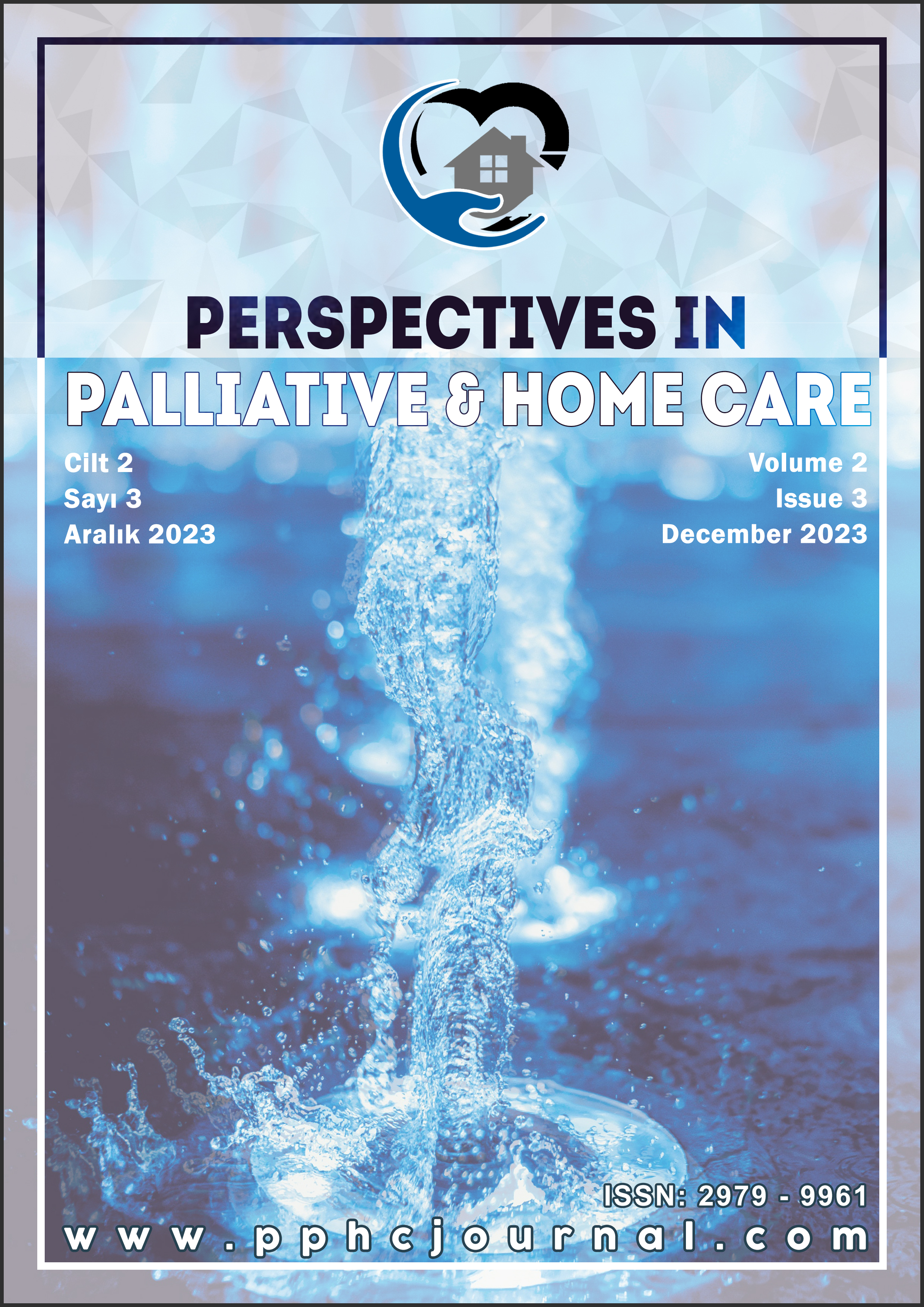Author :
Abstract
Giriş ve Amaç: Hemşirelik öğrencisinin duyarlılık düzeylerinin belirlenmesi, uygulama ve meslek hayatlarında hastalara iyi
ölüm olanağı sağlamada fırsat sunabilir, yapılacak çalışmalara kaynak olabilir. İlaveten hemşirelik öğrencilerinin duyarlılık
düzeyleri ile iyi ölüm seviyesini ölçmek, bu konuda yapılabilecekler hakkında öngörü sağlayabilir, eğitim müfredatına eklenebilir.
Bu araştırma hemşirelik öğrencilerinin duyarlılıkları ile İyi ölüm hakkındaki düşüncelerini belirlemek amacıyla yapıldı.
Gereç ve Yöntem: Tanımlayıcı türde olan bu araştırma bir üniversitenin lisans hemşirelik öğrencileri (n=232) ile yapılmıştır.
Veriler araştırmacılar tarafından hazırlanan Tanıtıcı Özellikler Formu, İyi Ölüm Ölçeği ve Duyarlılık Ölçeği kullanılarak toplandı.
Verilerin analizinde tanımlayıcı istatistikler, t test, ANOVA ve korelasyon testleri kullanıldı.
Bulgular: Öğrencilerin yaş ortalaması 20.02±1.84, %59.9 kadındır, %49.6’sı hemşirelik mesleğini az sevdiğini ifade ederken,
% 30.2’si ölümünden etkilendikleri bir yakınlarının olduğunu belirtmiştir. Kadın öğrencilerin ölüme ilişkin daha olumlu
düşüncelerinin olduğu ve duyarlılık düzeylerinin daha yüksek olduğu saptandı. Öğrencilerin iyi ölüm ölçeği puan ortalamaları
52.55±10.62, duyarlılık puan ortalamaları 53.24±7.64 olarak saptandı, her iki ölçek ortalaması orta düzeyden yüksek olarak
belirlendi. Öğrencilerin iyi ölüm ve duyarlılık toplam puan ortalamaları arasında pozitif bir ilişki olduğu belirlendi.
Sonuç: Bu çalışmada hemşirelik öğrencilerinin duyarlılık düzeyleri arttıkça iyi ölüme ilişkin görüşlerinin de olumlu yönde arttığı
bulundu.
Keywords
Abstract
Introduction and Aim: Determining and measuring the sensitivity levels of nursing students can provide an opportunity to
provide a good death to patients in their practice and professional lives, and can be a source of studies to be carried out. In
addition, measuring the sensitivity levels and good death levels of nursing students can provide insight into what can be done
in this regard, and the determined initiatives can be added to the training curriculum. The aim of this study was to determine
the sensitivity of nursing students and their thoughts about good death.
Material and Method: This descriptive study was conducted with undergraduate nursing students (n = 232) of a university.
Data were collected using the Descriptive Characteristics Form prepared by the researchers, the Good Death Scale, and the
Sensitivity Scale. Descriptive statistics, t test, ANOVA and correlation tests were used to analyze the data.
Results: The mean age of the students was 20.02 ± 1.84, 59.9% of the women were female, 49.6% of them expressed little
love for the nursing profession and 30.2% of them stated that they were affected by death. It was found that female students
had more positive thoughts about death and their sensitivity levels were higher. The mean score of good death scale of the
students was 52.55±10.62, and the mean sensitivity score was 53.24±7.64. It was determined that there was a positive
relationship between the mean scores of good death and sensitivity of the students. The mean of both scales was determined
to be higher than moderate.
Conclusion: In this study, it was found that as nursing students' sensitivity levels increased, their views on a good death also
increased positively





